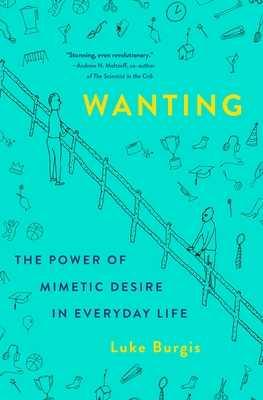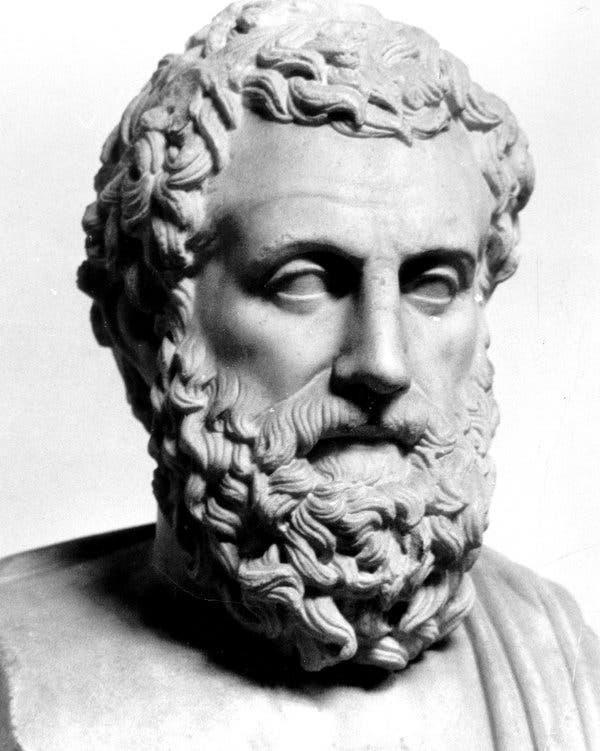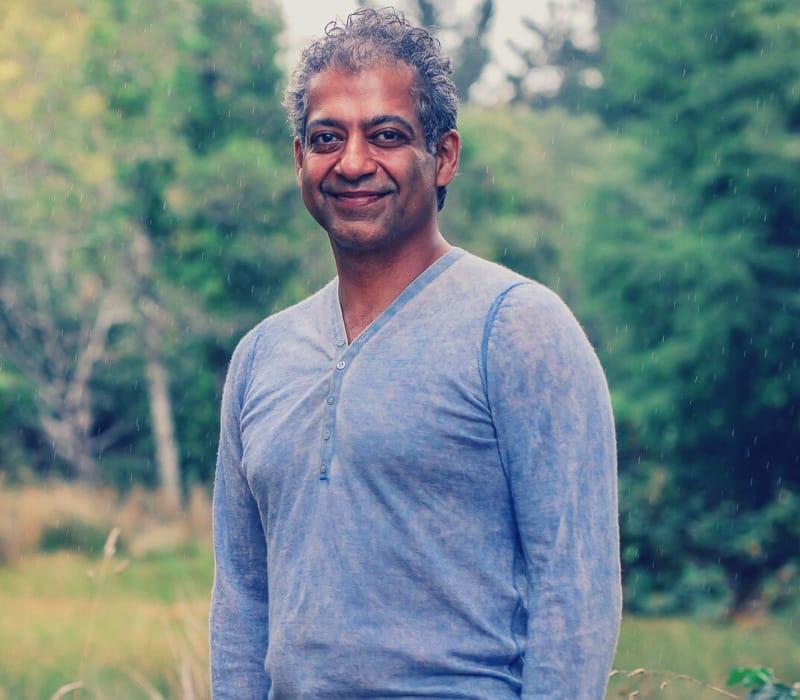Ryan Ray's Key Ideas from Wanting
by Luke Burgis
Ideas, facts & insights covering these topics:
21 ideas
·18.4K reads
67
1
Explore the World's Best Ideas
Join today and uncover 100+ curated journeys from 50+ topics. Unlock access to our mobile app with extensive features.
Imitation is natural to man from childhood, one of his advantages over the lower animals being this, that he is the most imitative creature in the world.
ARISTOTLE
157
3.5K reads
The Manifestation Of Desire
Wanting well, like thinking clearly, is not an ability we’re born with. It’s a freedom we have to earn. Due to one powerful yet little-known feature of human desire, that freedom is hard-won.
People don’t choose objects of desire the way they choose to wear a coat in the winter. Instead of internal biological signals, we have a different kind of external signal that motivates these choices: models. Models are people or things that show us what is worth wanting. It is models—not our “objective” analysis or central nervous system—that shape our desires.
162
1.89K reads
Models: The Real Source Of Desire
Models are the gravitational centers around which our social lives turn.
If you look hard enough, you will find a model (or a set of models) for almost everything—your personal style, the way you speak, the look and feel of your home. But the models that most of us overlook are models of desire. It’s deceivingly difficult to figure out why you bought certain things; it’s extraordinarily hard to understand why you strive toward certain achievements. So hard that few people dare to ask.
151
1.47K reads
Hidden Models—Romantic Lies, Infant Truth
We don’t want things that are too easily possessed or that are readily within reach. Desire leads us beyond where we currently are. Models are like people standing a hundred yards up the road who can see something around the corner that we can’t yet see.
So the way that a model describes something or suggests something to us makes all the difference. We never see the things we want directly; we see them indirectly, like refracted light.
Who are your models at work? At home? Who are the people influencing your buying decisions, your career path, your politics?
156
1.18K reads
Mimetic Models
Mimetic models(subconsious imitation) lie in wait every time we glance at our phone. The families of childhood friends post photos in which every day looks like a Christmas card, and Instagram models with bleached white teeth show us how they eat their nutritious breakfasts.
The universe of desire is dotted with billions of stars that appear to shine brightest at the exact moment when we find it hardest to see.
147
1.07K reads
The Capacity To Imitate
There’s something strange about our relationship to imitation. Humans possess advanced capabilities of imitation that allow us to create new things. Our ability to imitate in complex ways is why we have language, recipes, and music.
We are generally fascinated with people who have a different relationship to desire, real or perceived. When people don’t seem to care what other people want or don’t want the same things, they seem otherworldly. They appear less affected by mimesis—anti-mimetic, even. And that’s fascinating because most of us aren’t.
145
895 reads
Desire Is Subjective
Rivalry is a function of proximity. When people are separated from us by enough time, space, money, or status, there is no way to compete seriously with them for the same opportunities.
Celebristan external mediators of desire. They influence desire from outside of a person’s immediate world. From the perspective of their imitators, these models possess a special quality of being.
Freshmanistan is the world of models who mediate desire from inside our world. There are no barriers preventing people from competing directly with one another for the same things.
140
781 reads
The Cult Of Experts
One hundred years ago, there was a much wider gap in knowledge between someone who had a doctoral degree and someone who didn’t. Today, with the world’s information at nearly everyone’s fingertips, the knowledge gap between people with a great amount of formal education and those with less has narrowed.
In fact, holding certain degrees, such as a PhD or an MBA, can count against you if you’re pursuing jobs at companies that view them as a sign of one’s complacency. We are witnessing an inversion of value.
139
708 reads
Social Mediation
What we commonly call “social media” is more than media—it’s mediation: thousands of people showing us what to want and colouring our perception of those things.
Smartphones are like slot machines. Both work through the power of intermittent variable rewards—pulling the lever of a slot machine gives you a highly variable reward, which maximizes neurological addictiveness; your smartphone does the same thing every time you swipe down to refresh your Instagram feed, never knowing when something interesting might show up.
147
715 reads
Smartphones And Mimetic Desire
Smartphones project the desires of billions of people to us through social media, Google searches, and restaurant and hotel reviews. The neurological addictiveness of smartphones is real; but our addiction to the desires of others, to which smartphones give us unfettered access, is the metaphysical threat.
Mimetic desire is the real engine of social media. Social media is social mediation—and it now brings nearly all of our models inside our personal world.
145
624 reads
Innovation Imitation
If someone’s primary objective is innovation for the sake of innovation, they usually end up in a mimetic rivalry with everyone in their field to compete primarily on the basis of originality.
Being different for the sake of being different is the ethos behind shock-value art and academics whose salient feature is making outlandish claims to stand out from the pack.
If we’re free from the burden of trying to be completely original, we can stop trying to make something out of nothing, and we can embrace influence instead of running away from it.
141
576 reads
The Path Of Desire
Desire is a path-dependent process. The choices we make today affect the things we’ll want tomorrow. That’s why it’s important to map out, the best we can, the consequences of our actions on our future desires.
Start by thinking seriously about what a positive cycle of desire might look like for you. Start with a core desire. It might be spending more time with your kids, having more leisure time, or writing a book. Then map out a system of desire that makes it easier to bring that core desire to fulfillment.
145
555 reads
Moving Goalposts
We don’t rise to the level of our goals, we fall to the level of our systems. From the standpoint of desire, our goals are the product of our systems. We can’t want something that is outside the system of desire we occupy.
The obsession with goal setting is misguided, even counterproductive. Setting goals isn’t bad. But when the focus is on how to set goals rather than how to choose them in the first place, goals can easily turn into instruments of self-flagellation.
143
528 reads
The Trend Of Goalsetting
People set goals and make plans to arrive at a future point called “progress.” But will it be progress? How can we be so sure? Some goals—even good ones—overstay their welcome.
But it’s worth asking where goals come from in the first place. Every goal is embedded within a system.
Mimetic desire is the unwritten, unacknowledged system behind visible goals. The more we bring that system to light, the less likely it is that we’ll pick and pursue the wrong goals.
137
495 reads
Test Your Desires: Imagine Your Deathbed
The ultimate way to test desires—especially major life choices such as whether to marry someone or whether to quit your job and start a company—is to practice this same exercise but to do it while imagining yourself on your deathbed. Which choice leaves you more consoled? Which choice causes you more agitation?
Death is very likely the single best invention of life. It is life’s change agent. It clears out the old to make way for the new. The deathbed is where unfulfilling desires are exposed. Transport yourself there now rather than waiting until later, when it might be too late.
157
493 reads
Thick Desires
Discovering and developing thick desires protects against cheap mimetic desires—and ultimately leads to a more fulfilling life.
Thick desires are like diamonds that have been formed deep beneath the surface, nearer to the core of the Earth. Thick desires are protected from the volatility of changing circumstances in our lives. Thin desires, on the other hand, are highly mimetic, contagious, and often shallow.
142
470 reads
Discernment
Discernment is an essential skill because it’s a process for making decisions that includes but also transcends rational analysis. It’s critical for deciding which desires to pursue and which ones to leave behind.
Desires are discerned, not decided. Discernment exists in the liminal space between what’s now and what’s next. Transcendent leaders create that space in their own lives, and in the lives of the people around them.
137
449 reads
The Art Of Sitting Quietly In A Room
Silence is where we learn to be at peace with ourselves, where we learn the truth about who we are and what we want. If you’re not sure what you want, there’s no faster way to find out than to enter into complete silence for an extended period of time—not hours, but days.
All of humanity’s problems stem from man’s inability to sit quietly in a room alone.
158
506 reads
Two Opposite Thoughts In One Mind
It’s a sign of maturity to be able to hold on to two conflicting desires or two opposing ideas at the same time without immediately rejecting one or the other before there has been time for careful discernment. To live with desire is to live with tension.
Wise people have said that it’s best to compare yourself only to who you were yesterday, not to who other people are today. That’s a good start for escaping the trap of comparison and measurement.
149
464 reads
Desire is a contract that you make with yourself to be unhappy until you get what you want
NAVAL RAVIKANT
147
588 reads
Live As If You Have a Responsibility For What Other People Want
There is no person we encounter—not even in the most uninteresting interaction of our day—whom we do not help desire in one of these three ways. The changes are usually imperceptible. But like a giant flywheel, we are gently nudging other people’s desires in one or another direction.
The transformation of desire happens when we become less concerned about the fulfilment of our own desires and more concerned about the fulfillment of others. We find, paradoxically, that it is the very pathway to fulfilling our own.
142
480 reads
IDEAS CURATED BY
CURATOR'S NOTE
The real reason we want what we want.
“
Ryan Ray's ideas are part of this journey:
Learn more about books with this collection
Strategies for building self-confidence
Techniques for embracing your strengths and accomplishments
Tips for seeking support and feedback
Related collections
Discover Key Ideas from Books on Similar Topics
Read & Learn
20x Faster
without
deepstash
with
deepstash
with
deepstash
Personalized microlearning
—
100+ Learning Journeys
—
Access to 200,000+ ideas
—
Access to the mobile app
—
Unlimited idea saving
—
—
Unlimited history
—
—
Unlimited listening to ideas
—
—
Downloading & offline access
—
—
Supercharge your mind with one idea per day
Enter your email and spend 1 minute every day to learn something new.
I agree to receive email updates





















